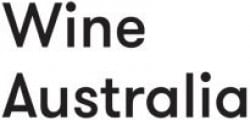Wine Australia

An ideal fermentation for wine is short, typically lasting no longer than a week. When fermentations become protracted, the delays can have a direct effect on the scheduling of winery operations. Worst-case scenarios may see residual sugar concentrations failing to meet production specifications, resulting in time-consuming and potentially expensive remediation actions. Fermentation management is complicated by the different types of fermentation employed (alcoholic and malolatic), the mode of those fermentations (concurrent or sequential, inoculated or not), the styles of wine being made (red or white, cellar bright juice or high solids) and the composition of the fermentation substrate (high YAN or high sugar) to name a few. These choices have the potential to shape fermentation outcomes and can lead to unpredictability in both the overall duration and completeness of fermentation.
This project will provide options for winemakers seeking to optimise fermentation performance while also providing opportunities to explore alternative approaches to ferment scheduling and strain selection. It will contribute to decreased wine production costs through building knowledge that will enable more efficient resource utilisation and increased fermentation efficiency.
The objectives of this project are to determine the inter-microbial dependencies and antagonisms that exist in winemaking. We will seek to identify interactions that maximise beneficial interactions and minimise antagonistic ones. This work will cover interactions between non-Saccharomyces yeast, S. cerevisiae yeasts, wine bacteria and non-inoculated microbial communities. The project will also seek to identify regimes of nutritional supplementation that will support successful microbial relationships. Nutritional work will include, but not be limited to, recycling of fermentation end-products as nutritional supplements.

-crop-850x675.png)
Have questions?
Find answers to our most frequently asked questions on research projects, commercial opportunities, organisations and more.
Still have questions or have feedback on the site? Please get in touch by completing our enquiry form.